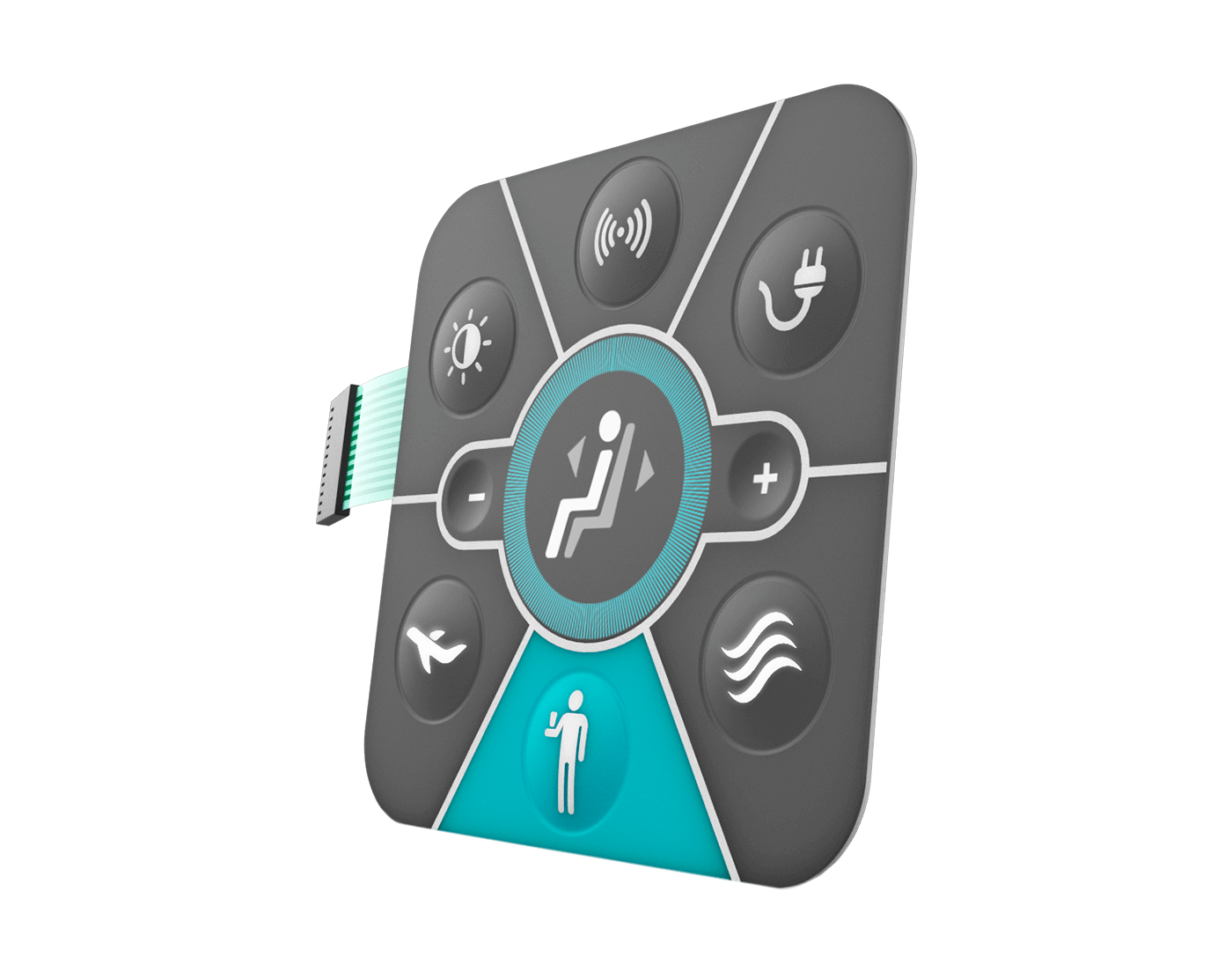Understanding the Technology Behind Membrane Switches
Understanding the Technology Behind Membrane Switches
Blog Article
Comprehending the Importance of Membrane Switches in Interface
Membrane switches are essential elements in the layout of reliable user interfaces, helping with not only performance yet additionally enhancing aesthetic appeal and user interaction. As we check out the future fads and numerous benefits linked with Membrane innovation, it ends up being clear that these buttons are extra than just components; they represent a convergence of advancement and usefulness.
What Are Membrane Buttons?

The spacer layer, which consists of sticky buildings, permits the splitting up of the circuit layer from the overlay, making sure that the switch remains in a non-activated state till pushed. When pressure is used to the overlay, it presses the spacer layer, bridging the void and finishing the circuit in the underlying layer. This design not just minimizes the physical area required for conventional mechanical switches but additionally boosts the longevity of the tool, as Membrane buttons are usually immune to dust, wetness, and other ecological elements.
Typically discovered in applications ranging from customer electronic devices to medical devices, Membrane buttons are essential to contemporary technology, offering a user-friendly and effective interface that lines up with contemporary style requirements.
Benefits of Membrane Buttons
While various button technologies exist, Membrane Switches offer distinctive advantages that make them especially preferable in various applications. Among the primary benefits of Membrane buttons is their compact style, which allows for space-saving applications in tools where realty is limited. Their slim profile not only improves visual appeal however additionally helps with light-weight building and construction.
Another considerable benefit is their resistance to environmental elements. Membrane buttons are typically sealed versus dampness, dirt, and contaminants, making them optimal for usage sought after environments, such as medical gadgets and commercial tools. This resilience prolongs the life expectancy of the button, lowering maintenance costs and enhancing reliability.
Additionally, Membrane switches can be customized to meet certain style needs, including one-of-a-kind graphics and shades that enhance user interaction. Their tactile feedback options can also be tailored to provide a satisfying user experience. Additionally, Membrane buttons are cost-effective, particularly in high-volume applications, as they can be produced successfully.
Applications in Various Industries

In the consumer electronics market, Membrane buttons are common in devices such as microwaves, cleaning devices, and remote controls. Their responsive comments and aesthetic alternatives boost customer experience while supplying a sleek, modern-day look. In addition, automobile manufacturers use Membrane buttons in control panel controls and infotainment systems, where space is restricted, and customer interaction is critical.
Moreover, the industrial field leverages Membrane buttons in control panels for machinery and devices, enabling for instinctive operation in often extreme settings. Their resistance to chemicals and wetness makes certain longevity and integrity in these applications. Generally, the adaptability of Membrane Switches adds considerably to their prevalent use, making them indispensable in numerous technological domains.
Style Factors To Consider for Membrane Switches

When making Membrane buttons, numerous key considerations should be thought about to make certain optimum functionality and user experience. First of all, the option of products is important; picking durable, top quality substrates can improve the switch's view durability and resistance to environmental elements such as wetness and temperature changes.
Secondly, the design of the graphic overlay need to focus on clearness and simplicity of use. Icons and text should be readable, and the format should facilitate instinctive communication (membrane switches). Furthermore, tactile feedback is crucial; including a responsive dome or other devices can boost the individual experience by supplying physical verification of activation
An additional vital aspect is the switch's electric performance. Designers have to make sure that the conductive traces are correctly designed to lessen resistance and prevent signal interference. This includes evaluating the called for actuation force and ensuring compatibility with the digital components they will certainly interface with.

Future Trends in Membrane Modern Technology
As innovation remains to advancement, Membrane buttons are positioned to evolve substantially, driven by innovations in materials and making techniques. One arising trend is the unification of innovative see materials, such as flexible substratums and conductive inks, which boost resilience and minimize the total weight of Membrane buttons. These materials not only enhance the responsive response but additionally enable the layout of switches that can endure harsher ecological conditions.
In addition, the combination of touch-sensitive technologies is transforming typical Membrane Switches into even more interactive interface. Capacitive touch sensing units installed within Membrane button panels can provide an extra responsive and instinctive user experience, aligning with the growing need for smooth, contemporary designs in consumer electronics.
Additionally, innovations in check out here printing techniques, such as electronic and 3D printing, enable fast prototyping and customization of Membrane buttons. This flexibility enables makers to react a lot more promptly to market needs and consumer choices.
Lastly, sustainability is coming to be a significant focus, with suppliers exploring environment-friendly products and processes. As these patterns unfold, the future of Membrane innovation assures boosted capability, visual appeal, and environmental duty, strengthening their function in sophisticated interface throughout different industries.
Conclusion
In verdict, Membrane Switches stand for a crucial element in the design of interface, integrating performance with aesthetic adaptability. Their benefits, including durability and resistance to ecological aspects, make them suitable for varied applications across various sectors. Moreover, thoughtful design factors to consider improve user communication and experience. As advancements in modern technology continue, the advancement of Membrane buttons is expected to more refine individual interfaces, driving advancement and enhancing use in an increasingly complex technological landscape.
Membrane buttons are integral elements in the layout of efficient user interfaces, facilitating not just performance but additionally improving aesthetic allure and customer interaction.Membrane Switches offer as a crucial component in numerous customer interfaces, promoting a seamless interaction in between users and digital devices.While countless button technologies exist, Membrane Switches offer distinct benefits that make them particularly preferable in numerous applications.Additionally, Membrane switches can be customized to meet specific design requirements, integrating distinct graphics and colors that improve individual interaction.In final thought, Membrane Switches represent an important part in the design of customer interfaces, combining performance with visual versatility.
Report this page